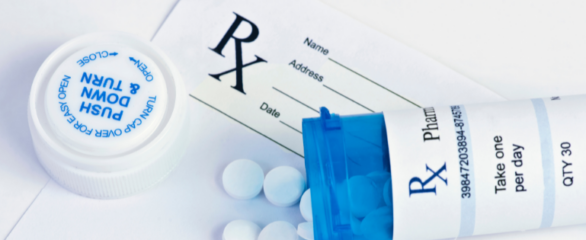Advisory Market Update
This the Advisory Market Update for August 2020 from IntegriChain. We want to keep you up-to-date with relevant, timely industry insights and regulatory updates that may impact your business. If you have questions on any of the content found in this or other newsletters, reach out to your IntegriChain Advisory Lead or advisory@integrichain.com and we would be happy to talk you through it.
Did You Know?
CVS Reportedly Creating Group Purchasing Organization for PBM Business
Healthcare behemoth CVS Health is reportedly launching its own group purchasing organization, for its pharmacy benefit management business, according to a recent Nephron Research report in Drug Channels. Details around the GPO are vague, but the goal of the GPO in the near-term may be to shift discounts to less transparent fee structures that are more difficult for its PBM customers to audit, allowing CVS to retain a greater share of rebate profits, according to the report.
You can read the entire publication here.
340B – Can Manufacturers Stop Offering 340B Prices to Covered Entities That Utilize Contract Pharmacies?
Eli Lilly decided that it will no longer offer discounts on its erectile dysfunction drug Cialis. This is in direct conflict with the Health Resources and Services Administrations (HRSA) decision, dating back to 1996, that encourages manufacturers to offer discounts to 340B contracted pharmacies. What stands out here with Lilly’s decision is that HRSA’s decision is not legally enforceable. There are several impacts here to both the 340B population and Lilly. By deciding not to offer these discounts, this drug is not being made available to an underserved population, reduces provider revenues, and increases profits to Lilly. Lilly’s decision can have greater impacts across the 340B program if other manufacturers decide to stop offering discounts to these contracted pharmacies and without the ability for HRSA to legally enforce the negative impact on this vulnerable population can ultimately have severe, adverse effects.
If you’re interested, here’s where you can read more.
Signed Executive Orders to Reduce Drug Pricing
On Friday, July 24th, President Trump signed 3 Executive Orders (EO) with one EO pending implementation that looks to lower drug pricing in the United States. The EOs directs the Secretary of Health and Human Services (HHS) to take steps in reducing drug costs for Americans. The following are the key points noted by Trump’s Executive Orders:
- End kickbacks (i.e., rebates) by middlemen (i.e., health plan sponsors & PBMs) that results in high out-of-pocket costs for Americans. Under this action, American seniors will directly receive these kickbacks as discounts on prescription drugs within the Medicare Part D program. Read more about this here.
- Require federally qualified health centers who purchase insulins and epinephrine (EpiPens) in the 340B program to pass the savings from discounted drug prices directly on to medically underserved patients. Read more about this here.
- Finalize a rule allowing states to develop safe importation plans (e.g., Canada) for certain prescription drugs. Read more on this new rule here.
- Ensure that the Medicare program and seniors pay no more for the most costly Medicare Part B drugs than any economically comparable OECD country This order will take effect in 30 days unless Congress acts against it.








